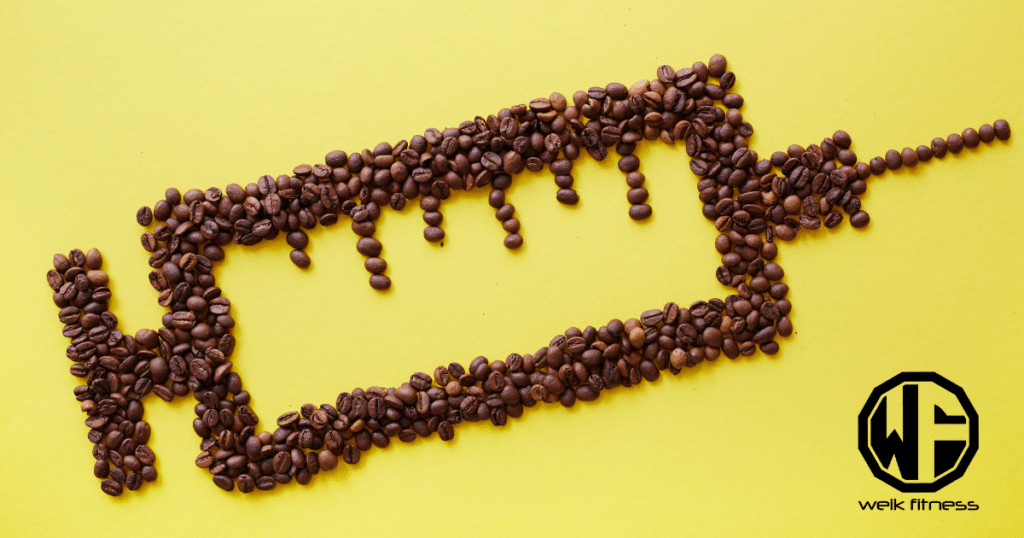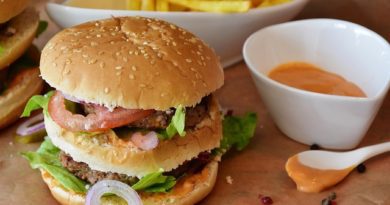3 Snack Options to Help Replace Your Caffeine Addiction
Do you have a caffeine addiction? If so, you’re not alone!
There are several people out there who don’t want to talk to anyone or even do anything that involves thinking before their morning cup of coffee (or the entire pot). Showering and dressing themselves is sometimes as far as they can go without stiff-arming one of their kids or spouse on the way downstairs to grab their cup of joe. What most people then find is throughout the day they are looking for another cup of coffee to battle their caffeine addiction. And then another cup of coffee. And so on.
The up and down of caffeine in the body sends people into a cognitive fog. Stalling all productivity from the day. They then need to feed their caffeine addiction to get them going. But now there are three snack options that can lend a hand when you need to kick-start the firing of neurons in your brain again to make it through the day.
On average around 85% of Americans are drinking at least one beverage each day that contains caffeine. These can range from coffee-type beverages, to sodas, teas, and the ever-famous energy drinks. These drinks wake us up, make us feel energized and alert, as well as help us get focused. The caffeine found in these products actually binds to receptors in the brain which in turn delays the onset of exhaustion and fatigue.
Due to the blocking of receptors in the brain, the pituitary gland then releases a hormone that creates a signal in the brain to dump adrenaline into the system. BOOM! Next thing you know you’re flying high as a kite and got the boost of energy you were looking for. That feeling is what we all like to call the caffeine buzz.
Disclaimer: This article is for informational purposes only and is not meant to treat or diagnose any condition. It is recommended that you speak with your doctor before starting any exercise program, changing your daily nutrition, or adding any supplements to your regimen.
Table of contents

What is a Caffeine Addiction?
Caffeine addiction, also known as caffeine dependence, occurs when a person becomes reliant on caffeine, a central nervous system stimulant found in coffee, tea, energy drinks, and some medications, to the point where they experience withdrawal symptoms if they reduce or stop their intake.
Symptoms of Caffeine Addiction
- Craving for Caffeine: A strong desire or need to consume caffeine.
- Tolerance: Needing more caffeine over time to achieve the same stimulating effects.
- Withdrawal Symptoms: Experiencing symptoms such as headaches, fatigue, irritability, difficulty concentrating, and depressed mood when not consuming caffeine.
- Continued Use Despite Problems: Continuing to consume caffeine despite experiencing negative effects like sleep disturbances, anxiety, or digestive issues.
Common Withdrawal Symptoms
- Headaches: Often described as a throbbing pain.
- Fatigue: Feeling unusually tired and sluggish.
- Irritability: Increased sensitivity and moodiness.
- Difficulty Concentrating: Trouble focusing on tasks.
- Depressed Mood: Feelings of sadness or a low mood.
- Flu-like Symptoms: Muscle pain, stiffness, and sometimes nausea and vomiting.

Causes of Caffeine Addiction
- Regular Consumption: Regularly consuming caffeine, especially in large amounts, can lead to dependence.
- Genetic Factors: Some people may be more genetically predisposed to develop a dependence on caffeine.
- Environmental and Social Factors: Habitual use can be influenced by cultural norms, social settings, and the availability of caffeinated products.
Managing Caffeine Addiction
- Gradual Reduction: Slowly decreasing caffeine intake over time to minimize withdrawal symptoms.
- Switching to Decaf: Replacing regular coffee or tea with decaffeinated versions.
- Staying Hydrated: Drinking plenty of water to help flush caffeine from the system.
- Getting Enough Sleep: Ensuring adequate rest to naturally boost energy levels without relying on caffeine.
- Seeking Professional Help: Consulting with a healthcare provider if dependence is severe or if there are underlying health concerns.
4 Tips for Reducing Caffeine Intake
- Track Consumption: Keep a diary of daily caffeine intake to become more aware of how much is being consumed.
- Find Alternatives: Consider non-caffeinated beverages like herbal teas, water, or caffeine-free soft drinks.
- Set Limits: Establish a daily limit for caffeine intake and stick to it.
- Create a Plan: Develop a step-by-step plan to gradually reduce caffeine consumption.
Caffeine addiction can significantly impact daily life, but with awareness and a structured approach, it is possible to reduce dependence and improve overall well-being.
Snack Items to Help Overcome a Caffeine Addiction

Below are three snack items that you can keep at your desk when you are in a pinch and need a quick pick-me-up without the use of coffee or other caffeinated beverages. Add these to help kick your caffeine addiction.
Apples
Maybe it was for good reason that teachers were always getting so many apples? Have you even tried to keep tabs on 20+ kids at one time? Personally, I’d be looking for the closest window to jump out of—regardless of what floor I’m on (I wouldn’t need to worry about a caffeine addiction).
The fact that apples are high in fiber along with natural sugars, make it great for getting some sustained energy while teachers help educate our children. But regardless of your profession, this fruit will help you during your time of need. The sugars from the apple break down slowly and provide a steady release of energy which makes them perfect for an afternoon snack when your morning coffee buzz starts to fade.
Apples also contain quercetin which reduces inflammation of neurons. This is especially important for helping improve memory and cognition alongside an increase in acetylcholine which is a very important neurotransmitter. For this reason, keeping an apple or two within an arm’s reach is a great idea to keep things firing on all cylinders during the day to help kick your caffeine addiction.
Click here to continue reading…


*Disclosure: This article may contain affiliate links or ads, which means we earn a small commission at no extra cost to you if you make a purchase through these links. These commissions help support the operation and maintenance of our website, allowing us to continue producing free valuable content. Your support is genuinely appreciated, whether you choose to use our links or not. Thank you for being a part of our community and enjoying our content.
PLEASE CONSIDER SHARING THIS ON YOUR SOCIAL MEDIA TO HELP OTHERS LEARN MORE ABOUT THIS TOPIC.





